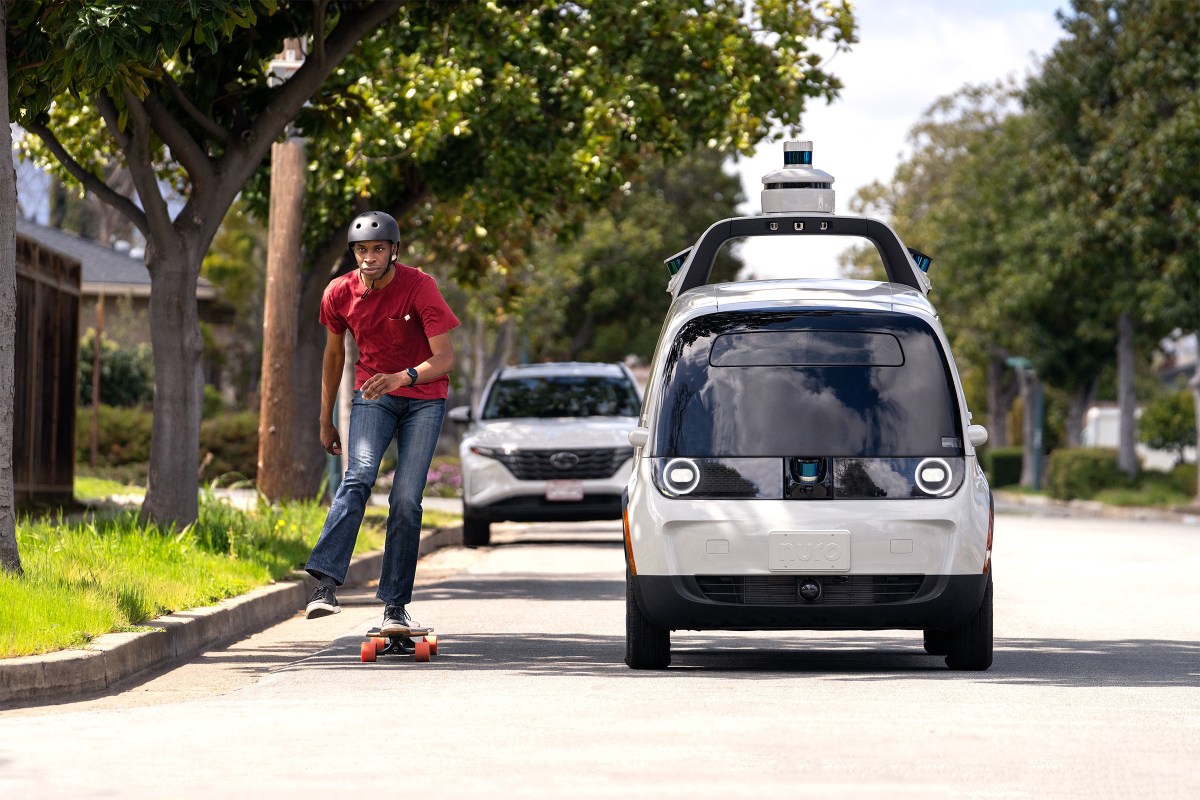Nuro’s R3 Autonomous Delivery Vehicle Gets Green Light in Bay Area
A New Chapter for Nuro
Table of Contents
- A New Chapter for Nuro
- Expanding the Reach of Driverless Delivery
- Nuro’s Focus on Autonomy
- Testing and Validation: A Key Priority
- Level 4 Autonomy: The Goal
- Nuro’s Partnership with Uber Eats
- The Future of Autonomous Delivery
- A New Era in Autonomous Delivery
- Expanding Operational Reach
- AI-Powered Innovation
- Scaling for the Future
- Related Content
The California Division of Motor Vehicles (DMV) has granted Nuro approval to test its third-generation autonomous delivery vehicle, the R3, in four Bay Area cities: Mountain View, Palo Alto, Los Altos, and Menlo Park. This significant development marks a positive turning point for Nuro after facing recent setbacks and financial challenges.
Expanding the Reach of Driverless Delivery
Nuro’s driverless vehicles are specifically designed for goods transportation, lacking seats, windows, steering wheels, or pedals. They resemble large sidewalk delivery robots, equipped with temperature-controlled storage compartments to safely transport food and other items. This expanded geographic deployment will represent one of the largest deployments of fully autonomous vehicles in the US, second only to Waymo, according to Nuro co-founder Dave Ferguson.
Nuro’s Focus on Autonomy
While Nuro previously had plans for large-scale manufacturing in partnership with BYD, the company shifted its focus to refining its autonomy technology after experiencing financial difficulties and undergoing layoffs. Ferguson emphasizes that Nuro remains dedicated to testing and validating its new AI architecture, which is showing promising results.
Testing and Validation: A Key Priority
Nuro has been rigorously testing its R3’s hardware and software stack on a fleet of retrofitted Toyota Priuses (approximately 100 according to sources). They have even continued to conduct deliveries for Uber Eats using these test vehicles. This commitment to thorough testing underscores Nuro’s dedication to achieving Level 4 autonomy, as defined by the SAE.
Level 4 Autonomy: The Goal
Level 4 autonomy signifies a vehicle’s ability to drive itself without human intervention in specific situations. Nuro’s focus on achieving this level of autonomy positions them at the forefront of the autonomous vehicle industry.
Nuro’s Partnership with Uber Eats
Nuro has a long-standing 10-year commercial agreement with Uber Eats, which they have been testing with third-party vehicles. This partnership highlights Nuro’s commitment to real-world applications of autonomous delivery technology.
The Future of Autonomous Delivery
Nuro’s recent approval and continued focus on autonomy development signal a promising future for the company. As autonomous delivery technology advances, Nuro is poised to play a significant role in shaping the future of logistics and transportation.
The Future of Delivery: Nuro’s R3 Takes Center Stage
A New Era in Autonomous Delivery
The autonomous delivery landscape is rapidly evolving, with companies like Nuro pushing the boundaries of what’s possible. Nuro’s latest vehicle, the R3, represents a significant leap forward, boasting enhanced capabilities and paving the way for wider commercialization. This partnership with Uber Eats promises to revolutionize how we receive our favorite meals and goods.
Expanding Operational Reach
While Nuro’s initial plans with BYD faced some setbacks, the company has secured a fleet of R3 vehicles from the EV-maker. These autonomous delivery robots will soon be deployed in key markets like the Bay Area and Houston, expanding Nuro’s operational footprint significantly. Uber Eats is also eager to integrate the R3 into its delivery network, aiming to utilize these advanced vehicles for deliveries this fall.
One of the most notable advantages of the R3 over its predecessor, the R2, is its increased speed limit. The R3 can reach up to 45 miles per hour, compared to the R2’s 25 mph limit. This enhanced speed capability allows Nuro to conduct full Level 4 driverless testing and deployments across a wider area, effectively opening up new possibilities for commercialization.
AI-Powered Innovation
Nuro’s commitment to AI innovation is evident in the R3’s design. The company has adopted a sophisticated approach that utilizes one to two large foundational AI models to handle various tasks like mapping, localization, perception, prediction, and planning. This centralized system streamlines operations and improves overall efficiency.
To ensure real-time validation of its AI systems, Nuro combines this centralized approach with a more traditional system where individual AI models are responsible for specific tasks. This dual-pronged strategy allows Nuro to continuously refine its AI capabilities and deliver reliable autonomous performance.
Scaling for the Future
The R3’s advanced features and expanded operational reach set the stage for Nuro’s future growth. While scaling up operations won’t happen immediately, Nuro is strategically positioning itself for expansion. However, potential tariffs on BYD-manufactured vehicles could pose a challenge in the long run. Nuro remains optimistic about its partnership with BYD but acknowledges the need to explore alternative manufacturing options as the landscape evolves.
In the meantime, Nuro continues to focus on refining its technology and maximizing the impact of its Uber Eats deliveries. The company is also exploring new avenues beyond autonomous delivery, hinting at exciting possibilities for the future.
- Autonomous Delivery: Shaping the Future of Logistics
- AI in Logistics: Transforming Efficiency and Operations
- The Future of Ecommerce: Trends and Innovations


